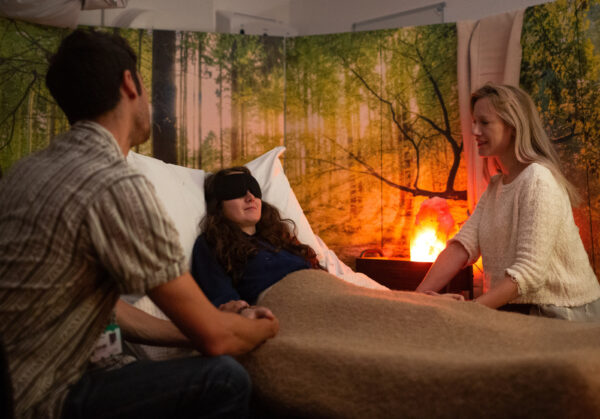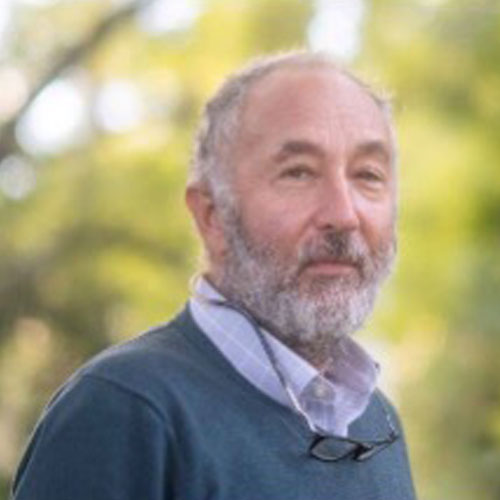You know that feeling. When you listen to the radio and someone says something so profoundly offensive, you just cannot stop yourself from yelling profanities out loud, despite a part of your brain telling you that it is pointless, and indeed somewhat juvenile.
I had this experience listening to the Health Report of 13 March 2023 titled “Psychedelic Decision Under Scrutiny”. You can listen to it here.
Researcher weighs in on psychedelic debate – ABC Radio National
The topic was the recent limited rescheduling of Psilocybin and MDMA enabling certain psychiatrists to prescribe and treat approved patients for treatment resistant depression and PTSD respectively. The decision is reported here.
By way of disclosure, I am on the advisory panel of Mind Medicine Australia, and made a submission supporting the rescheduling and debunking the risks of illicit diversion. A copy of my submission is here.

The segment started with the by now well-known views of Professor Patrick McGorry who expressed reservations regarding the rescheduling saying:
“I think the risks (are) going to potentially outweigh the benefits – if there are any”.
Really. No benefits? However, the guts of the program was an interview with Professor Susan Rossell, research fellow at Swinburne’s Centre for Mental Health who, we are told, is commencing a large trial of psilocybin of people with treatment resistant depression.
By the by, I note from Swinburne’s breathless reporting of this research that it is funded by Woke Pharmaceuticals to the tune of $5 million. It will be the biggest research trial in Australia examining psychedelic mushrooms. It has 160 patients participating in a randomised controlled trial of psilocybin-assisted psychotherapy verses a placebo.
“The idea of treating depression with magic mushrooms is considered controversial by some, but lead researcher Professor Susan Rossell says psychedelics have been shown to provide long-term durable benefit in a multitude of psychiatric disorders.
“Psychedelics could transform the landscape of treatments for many psychiatric disorders, including major depression.”
This funding is not mentioned anywhere during the Health report, and nor it is disclosed on the Health Report website. I am not suggesting anything sinister by this, however there is clearly a potential impact connection between the research by Swinburne and the decision of the TGA. While some would argue that the research is even more important following the rescheduling, others have pointed out that there will be less need for research once the prescription model begins, because there will be a cohort of individuals being treated who are ripe for study and follow-up.
I wonder why someone would participate in a trial when they might be getting only a placebo, when they can go and see their psychiatrist knowing that they will get the real thing. You’d have to think Woke would at least be reviewing their investment.
In my opinion it would at least be prudent to disclose this potential conflict of interest.
Swinburne’s information is here:
Professor Rossell was “enormously surprised” by the TGA decision.
Her first controversial statement was this:
“For it to be downsized without any consultation with researchers and clinicians in this space is a little bit weird to me”.
The TGA process is consultation rich, and at every stage there has been the opportunity for researchers and clinicians to make submissions. The representative bodies of psychiatrists, doctors and many researchers certainly did. Indeed, the TGA has a whole consultation hub utilised for all decisions, including this one.
However, the real nub of her complaint is (believe it or not) that the treatment is just too effective:
“For people where it does work, it has a profound effect on their wellbeing, and I mean absolutely profound. These are people with treatment resistant problems who have been unwell for sometimes 20 years and we find they get something called a burden of normality. These are people who haven’t finished school, haven’t finished university, cannot hold down a job and all of a sudden for the first time can think clearly, for the first time in 20 years and they have to put their lives back together……at least we need to work this out in research before we can even think about rolling it out into the clinical landscape and rolling it out into health services”.
Professor Rossell refers to studies on deep brain stimulation, claiming that those who don’t have appropriate long-term care including, psychosocial rehabilitation, “they get worse again”. She says that self-harm risk and suicide risk “could” be elevated.
Again she states that these are people who have never worked before, never had productive relationships.
When asked by Norman Swan if it is too late for the TGA to reverse this she said:
“The TGA went into this blindfolded, very much pushed into it by Mind Medicine”.
It is hard to know where to start with these propositions.
Firstly the depiction of those with treatment resistant depression is inaccurate in that it is portraying just one end of the spectrum. There are plenty of functional people with Treatment Resistant Depression. The Hon Andrew Robb AO, former Trade Minister for Australia had treatment resistant depression for 43 years! If the Professor’s research is going to be limited to those with treatment resistant depression who have never had a job or a relationship then it will be a very limited study indeed. The truth is that whatever the difficulties in defining treatment resistant depression her choice of descriptors is at best misleading. And to what aim is she characterising those with treatment resistant depression in that way?
Second, to suggest that the TGA was blindfolded and succumbed to pressure insults the independence and rigour of the TGA process. I was peripherally involved in the medicinal cannabis campaign, and anyone who suggests that the TGA is a push-over on previously illicit drugs ignores history and precedent. I am still faintly surprised that I find myself defending them!
Third, if the Professor was arguing that protocols should be developed for after-care of those who are successfully treated by psilocybin, there would be no dispute by anyone in the sector. In fact, I’d be staggered if they were not part of her trial. But to argue, as she clearly does, that this needs to be established by research before we can bring psilocybin into the clinical space is putting cautionary hurdles before common sense.
Imagine if I had developed a treatment for paraplegia. But I argued that people should not be able to get out of their wheelchairs until another two years of research was undertaken to ensure that after care was optimal. It is abundantly clear that treatment resistant depression kills people, and that relieving their symptoms is the goal. To suggest that this should be delayed while research is finished strains credulity. It is simple – just make sure the prescribed patients are supported when their depression lifts.
Fourth, lives will be lost by such an approach. Almost one quarter of deaths in those aged 15-44 are due to suicide, the leading cause of death for this age group. Mental and behavioural disorders were present in almost 63 percent of deaths of people who died by suicide. It’s a reasonable assumption that many of them are suffering from treatment resistant depression or PTSD. Let’s deal with the burden of normality by introducing protocols that have been proven to work, rather than sit by while research is completed into a common treatable predictable potential side effect.
I was a coroner for 22 years, dealing with the scarring consequences of suicide every day. This is a treatable condition, and the Professor herself refers to this therapy as potentially transformative.
Stats & Facts – Suicide Prevention Australia
Finally, the opposition to the rescheduling ignores the reality – there is a huge ongoing unregulated black market out there. One of the downsides about taking a public stance on psychedelic-assisted therapies is the perpetual batting away of those desperately seeking assistance. Friends, distant relatives, ex-students all frantic to get help for their serious mental health ailments.
There are hundreds of people offering treatment from shamans to micro-dosers of LSD to whole weekend retreats with psilocybin and MDMA. Some are shysters, others are deeply committed professionals. I have been to two conferences recently where people openly discuss the treatment they offer. People travel to The Netherlands and other countries to get help. I know doctors, lawyers, psychologists and brick layers who have had treatment here. Young people go hunting in search of mushrooms, or enter the criminal milieu to obtain MDMA and seek to self-medicate. The prisons are littered with those caught possessing or supplying these drugs, even for medicinal purposes.
Surely regulation is better than all that!
I have not thrown my radio across the room. However, I will ensure that Dr Norman Swan sees these comments. The truth is that the TGA rescheduling should be celebrated by all as an exciting opportunity for Australia to lead the world in the utilisation of these once-illicit substances. Rather than getting bogged down in illusory risks and over-caution, the ability to prescribe will enable immediate treatment and new research possibilities. Let’s embrace these with gusto!

David Heilpern LLB, LLM
David Heilpern was appointed as a Magistrate in 1998, and was at the time the youngest magistrate in Australia. He ‘retired’ in May 2020. He sat in the criminal, mining, family, industrial, coronial and children’s jurisdictions of the Local Court, and was the Senior Civil Magistrate for five years. During his time on the bench, David was the principal educator for new magistrates throughout Australia and the Pacific and made several important reported decisions on criminal, environmental and evidence law.
Prior to his appointment, David was a litigation lawyer on the North Coast where he co-founded the law school at Southern Cross University, rising to becoming the Acting Dean in 1996. He maintained a litigation practice throughout this time, representing a wide range of defendants including high profile clients North East Forrest Alliance and Nimbin Hemp. During this time David graduated with a Masters in Law and was pronounced the Alumni of the Decade for the University in 2005.
David has written four published books, three of which have now had multiple editions, dozens of refereed journal articles, and is a prize-winning short story writer and poet.
David has recently been appointed as a Professional Practice Professor and Adjunct Professor at the School of Law and Justice at Southern Cross University. He has returned to the practice of law and his writing is now focussed on drug law reform, aboriginal overrepresentation in the criminal justice system and environmental activism.